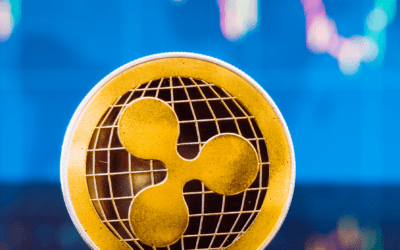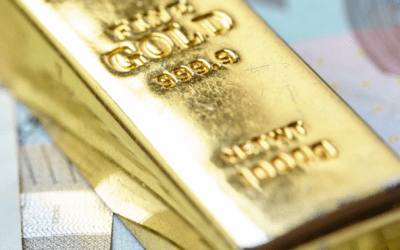Dateline: Kuala Lumpur, Malaysia This time, you can’t just blame FATCA. While the United States government has been on a global campaign of financial imperialism, seeking to impose its will on every foreign country and every foreign bank, the Treasury’s Foreign Account Tax Compliance Act – also known as “A Slammed Door in the Face for US Persons” – that law itself is not the only one making it hard for US citizens to bank and invest overseas. It seems every time you turn around, a new bank is turning away Americans. No sooner, for example, did I get word from one of our contacts that New Zealand trust bank Breder Suasso was willing to open accounts for offshore companies owned by US citizens than the bank said they had stopped doing so. In fact, I have a full-time researcher who calls banks and other institutions to check on their latest policies, and many refuse to do business with US citizens. (The good news is plenty of banks do accept Americans, but they’re not the banks you’d expect.) Banking is tough, but there are a lot of other regulations that make it hard for Americans to invest offshore. Among the reasons for this is that your government thinks you’re stupid. Or at least they pretend. Despite the fact that a full one-third of Dow components – the alleged “best of the best” of the stock market – are losing money, the US government thinks Americans should be very scared to invest outside of the United States. In a sign of the ultimate jingoism, the US government actually believes its citizens aren’t smart enough to navigate the allegedly shady offshore investment markets. It doesn’t matter that frontier and emerging markets have seen some amazing returns. At our Passport to Freedom conference earlier this year, offshore banker Peter Zipper shared what many professional investors already know: most mutual funds are total dogs. US and Canadian markets are littered with crappy, underperforming mutual funds run by large companies and TV stars like Kevin O’Leary alike. But Peter also shared that opening an offshore bank account was one way to open yourself up to international investing options US banks aren’t allowed to touch. There are plenty of good mutual funds out of the reach of the average American, who is stuck with a bunch of garbage thanks to US government rules. But what about more “exotic” investments, like forex? Sadly, offshore brokerage firms have become rather off limits to those who want to open an offshore brokerage account. Here in Malaysia, forex companies advertise that one can start trading 40,000 ringgit in currency with less than $100 to start. When I was in Indonesia last year, I met a number of forex traders all the way down to a couple of 25-year old girls. Asians, who have a traditional penchant for real estate investing and gold ownership, don’t see forex as some scary investment. While currency trading does have a higher rate of loss than equities investing, they seem to understand the risks and proceed accordingly. That laissez faire attitude is not shared in Washington, and it makes life difficult for average investors. When it comes to anything “exotic” or offshore, you can count on the US government to ring fence its citizens in to only investing in stuff they can control. And it’s is no secret that a lot of international forex brokers have regulations that restrict US traders. When the brain trust in Congress passed Dodd-Frank a few years ago, the idea was to regulate the financial system so that no poor soul could ever lose his shirt making a bad investment or taking out a mortgage he or she couldn’t afford. In their efforts to kowtow to the lowest common denominator, Congress created a slew of regulations that stop more sophisticated traders from going offshore. That’s because Dodd-Frank requires any forex company wishing to do business with US citizens to be regulated by the Commodity Futures Trading Commission and the National Futures Association. As if being regulated by one goliath agency wasn’t enough, the politicians decided two was better. Say hello to regulation in the era of financial imperialism. Foreign forex brokers, not used to complying with regulations in a country they have no presence in, found it hard to comply with this law. And like many offshore banks, they have largely chosen to simply sit this one out. Even those that have continued to accept Americans have had to worsen the spreads and leverage requirements in order to compensate themselves for the risk of accepting those holding the world’s new toxic asset: US citizenship. We frequently discuss the fact that history tends to play itself out in this same fashion. Some government comes in, creates poor monetary policy that leads to a disaster, points the finger at the free market, and promises to “fix” the problem they created… if only you’ll hand over your freedoms. And if only the evil fat cats at the top go along with severe restrictions on their wealth and freedom. While it’s true that the government does indeed believe you are an idiot requiring its help just to function on a daily basis, that government is also on a campaign to cut off your escape routes. Politicians see the staggering numbers of Americans renouncing their citizenship and they don’t like it. Guys like Chuck Schumer have openly railed against it. More and more US citizens are leaving forever because they are tired of the restrictions imposed on them, whether those restrictions be related to travel, taxes, or investing. Having a second passport isn’t necessary if you supplement your income with food stamps. In fact, I’m a bit surprised to see people with no assets wanting to renounce their US citizenship. But if you are an investor – someone with money – who believes you should have the right to invest where you please and take your own risks, then the United States is increasingly not a place for you.
The Security Challenges of CBDCs and How to Overcome Them
The adoption of Central Bank Digital Currency (CBDC) is gaining traction across the globe, with...









